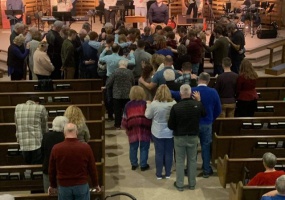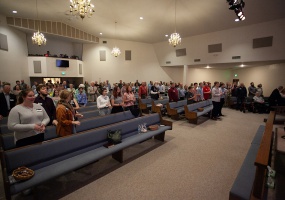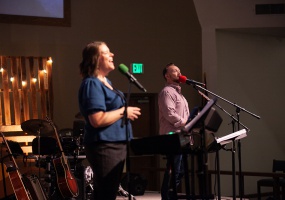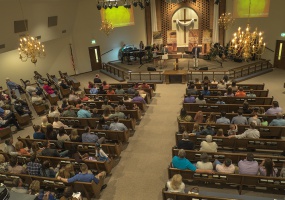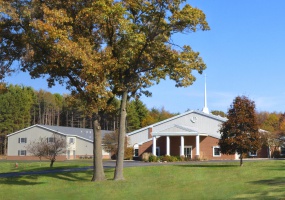Rejoice and Be Glad?
by pastor Andy Lauer
Each of these devotional blogs entries is meant to be read on your own or if you have family or friends you live with, to be read together aloud. A suggestion is to do this after you have dinner around the table together. At the conclusion, please spend time in personal reflection or in sharing with one another your answers to the questions at the end. Be sure to conclude with prayer.
Read Psalm 118.
This is the day the Lord has made; we will rejoice and be glad in it. (Psalm 118:24)
Growing up there was a familiar chorus we often sang in church based on this verse:
This is the day, this is the day
That the Lord has made, that the Lord has made
Let us rejoice, Let us rejoice
And be glad in it, and be glad in it.
If you’ve ever sung that before, you know it’s a happy tune and has a lively rhythm. If you didn’t know the rest of the psalm from which it was taken, you’d think it was written by a person who had not a care in the world.
However, the writer of Psalm 118 (and most of the psalms), was King David. And as you’ve just read, King David did NOT live care-free life. As a young teen, he confronted and killed (with God’s help) the giant Goliath of the Philistines. Later, King Saul hunted him across the wilderness because he saw David as a threat to His throne. Then, once God had dethroned Saul because of his sin and set David up as the new king, David had to contend with not only external enemies to Israel, but internal enemies even amongst his own sons. How could he compose such uplifting words? “Let us rejoice and be glad”?
The answer is seen in the rest of Psalm 118. For every time he mentions something like, “The nations surrounded me . . . they surrounded me like bees” (vv. 10, 12), he also declares that God has delivered him. Yes it was true that many enemies had sought his demise, and yet here was David, composing these beautiful words of salvation—evidence that God had indeed delivered him from his enemies.
So what helped him during those dark times? The answer is also in Psalm 118; the Lord, his Rock, the “chief cornerstone” (v.22) the One upon whom David had built his life, had preserved him.
This really is a hymn of praise and celebration for all of God’s people—both the Israelites in Old Testament times, and all followers of Jesus for the last 2,000 years. It is a call to remember how God has been with us in perilous times, and to take courage that the One whose loving faithful character never changes (Malachi 3:6) will deliver and sustain us into the future as we await Jesus’ return.
In these uncertain times, we can be certain that God is the “chief cornerstone,” whose “love endures forever,” who is “our salvation.”
Blessed be the name of the Lord!
Reflect with someone else or on your own:
- In what ways has the current situation in our world affected you? What thoughts and feelings have you had becauese of this?
- How has God supported and delivered you in the past? How has He provided for you?
- Look back at Psalm 118. Either on your own, or one at a time with your family or group, take turns reading again each verse that mentions God’s aid, love, deliverance, salvation, etc.
- Take a minute and share or reflect on how you’re trusting in God to be with you during this time. Share how this psalm gives you hope and courage.
- Take time to share any needs—spiritual, relational, physical, or other—you may have and then pray a short prayer to God for each one.






